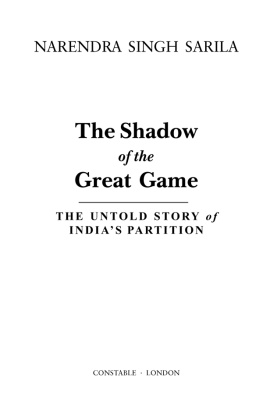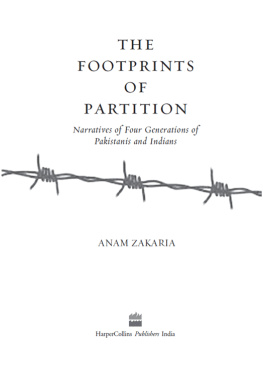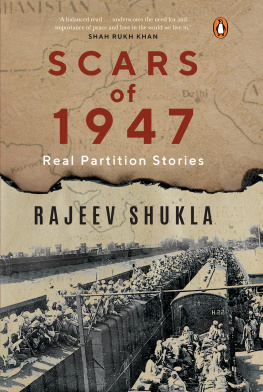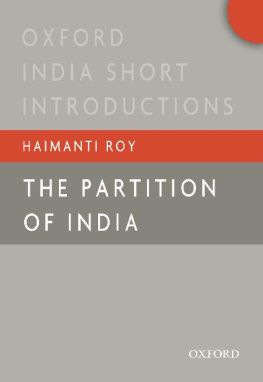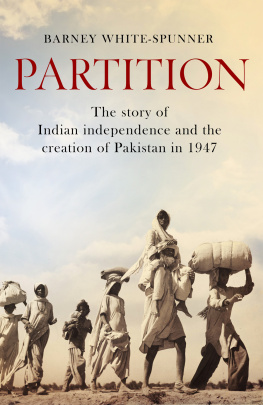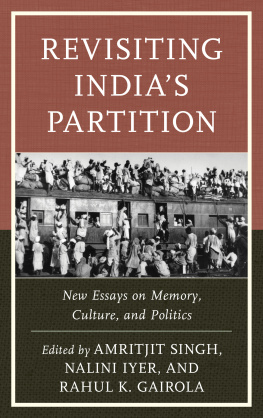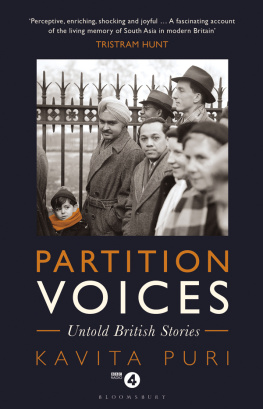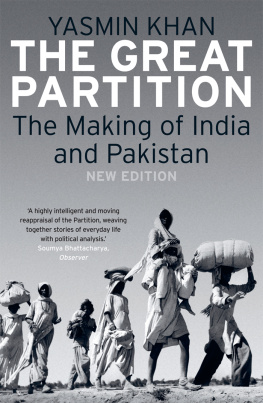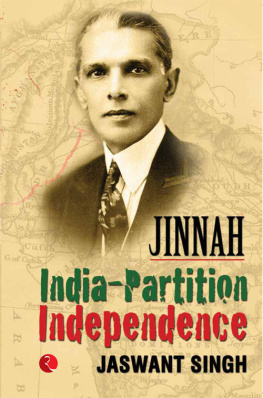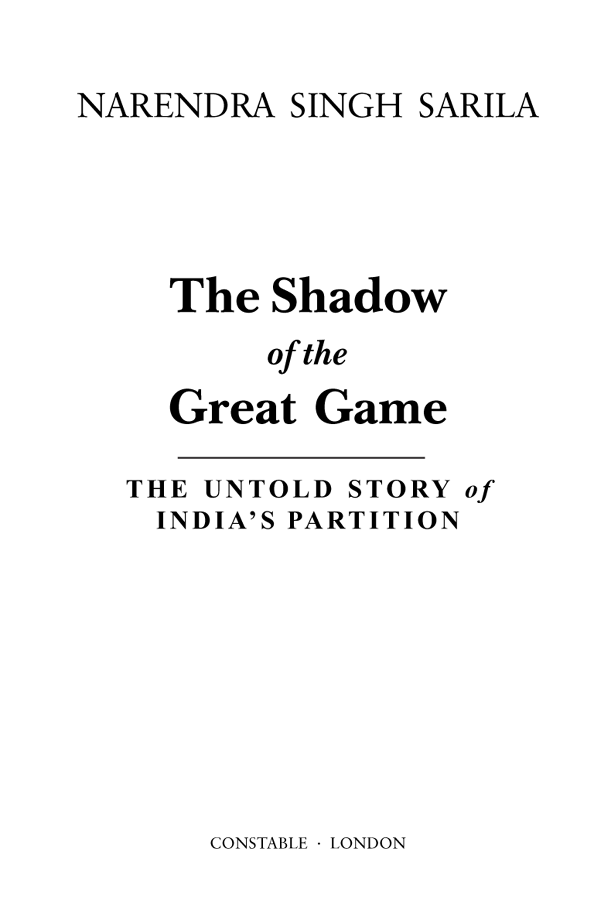
Published by Constable
Copyright Narendra Singh Sarila, 2005, 2006
The right of Narendra Singh Sarila to be identified as the author of this work has been asserted by him in accordance with the Copyright, Designs and Patents Act 1988
All rights reserved. This book is sold subject to the condition that it shall not, by way of trade or otherwise, be lent, re-sold, hired out or otherwise circulated in any form of binding or cover other than that in which it is published and without a similar condition including this condition being imposed on the subsequent purchaser.
A copy of the British Library Cataloguing in
Publication data is available from the British Library
ISBN: 978-1-47212-822-5
Constable
is an imprint of
Little, Brown Book Group
Carmelite House
50 Victoria Embankment
London EC4Y 0DZ
An Hachette UK Company
www.hachette.co.uk
www.littlebrown.co.uk
To
My son Samar Singh Sarila
and the younger generation of Indians
Contents
W HILE RESEARCHING IN THE ORIENTAL AND INDIAN COLLECTION OF the British Library, London, in 1997, on another matter, I came across certain documents which revealed that the partition of India in August 1947 may not have been totally unconnected with the British concern that the Great Game between them and the USSR for acquiring influence in the area lying between Turkey and India was likely to recommence with even greater gusto after the Second World War. And to find military bases and partners for the same.
The USSRs powerful victory over Germany in 1945 had increased Joseph Stalins ambitions to extend his countrys influence into territories on its periphery; indeed, he had already started to do so in Eastern Europe. To the Soviet Unions southern border lay the region of the Persian Gulf with its oil fields the wells of power that were of vital interest to the West. Under the circumstances, Britain could ill afford to lose control over the entire Indian subcontinent that had served as its military base in dominating the Indian Ocean area and the countries around the Persian Gulf for more than half a century and which was also the main source of manpower for the Imperial Army.
Once the British realized that the Indian nationalists who would rule India after its independence would deny them military cooperation under a British Commonwealth defence umbrella, they settled for those willing to do so by using religion for the purpose. Their problem could be solved if Mohammad Ali Jinnah, the leader of the Muslim League Party, would succeed in his plan to detach the northwest of India abutting Iran, Afghanistan and Sinkiang and establish a separate state there Pakistan. The proposition was a realizable one as a working relationship had been established between the British authorities in India and Jinnah during the Second World War and he was willing to cooperate with Britain on defence matters if Pakistan was created.
Very little attention has been paid so far to the influence of British strategic concerns on Indias partition. Consequently, I thought I would use the recently unsealed documents to make the facts in them available to the public. For this, I researched not only in the Oriental and India Section of the British Library (where David Blake, the curator, was very generous with his time) but also in the Hartley Library in Southampton (where Lord Louis Mountbattens archives are kept); the Public Records Office in Kew (to which place most British ministers and Foreign Office officials consigned their papers); the archives of the State Department of the USA (covering the period 194248 and containing the correspondence of President Franklin Delano Roosevelt with Prime Minister Winston Churchill and with his special envoys in India at that time); the National Archives in Washington; and the Library of the US Congress.
In 1948, as an ADC to the governor-general, Lord Mountbatten, I became familiar with the main locations where the developments had unfolded in New Delhi and Simla and caught glimpses of some of the players. I also gained insights from my fathers numerous British friends who had played a role in formulating or implementing British policy towards India. Later on, in the 1960s, while dealing with Pakistan affairs as an Indian diplomat in New Delhi and New York, I came face to face with the attitude of the great powers towards India and Pakistan that had their roots in the events of pre-independence India.
The subject is also fascinating because of the little known facts about the unobtrusive pressure the United States exerted on Britain in favour of Indias freedom and unity from 1942 onwards. Roosevelts object was to evolve a post-war order for Asia free from European colonialism. Churchill trumped this pressure by playing the Muslim, or the Pakistani, card, that the real problem lay in HinduMuslim differences about Indias future and not in Britains unwillingness to accept self-determination for India. American pressure contributed finally in no small measure in persuading Britain to accept the inevitable in India, though the Indians never really recognized this contribution.
The archives are also engrossing because the Indian leaders conversations with, and written communications to, the viceroy were meticulously recorded by the British and give details of their views and tactics, which do not fully emerge from the Indian records. The Indian nationalists miscalculations, their upholding ideals divorced from realities and their inexperience in the field of international politics emerge in their own words in the records. It is therefore also a cautionary tale.
The subject is surely also of topical interest. With the end of the Cold War, the retreat of Russia from its Central Asian territories and the deployment of the US forces in strength in the Persian Gulf, the importance of Pakistan as a strategic partner in the Great Game against Russia began to decrease. On the other hand, Al-Qaidas attacks on the World Trade Center towers in New York and on the Pentagon in Washington on 11 September 2001 brought into sharp focus the menace of Islamic terrorism and the use of Islam for political purposes, i.e., political Islam. The Taliban Government in Afghanistan was set up with the military and diplomatic support of Pakistan. It provided shelter to Al-Qaida and to Osama bin Laden. The Taliban and bin Laden were influenced by the tenets preached by Indian-born Abdul Al Mawdudi, the leader of the Jamaat-i-Islami, Pakistan, who advocated a government strictly based on the Shariat, a clash of civilizations and jihad against non-believers. Many of the roots of Islamic terrorism sweeping the world today lie buried in the partition of India.
The successful use of religion by the British to fulfil political and strategic objectives in India was replicated by the Americans in building up the Islamic jihadis in Afghanistan for the same purpose, of keeping the Soviets at bay. There is no gainsaying that nations will ever stop taking advantage of whoever or whatever comes in handy to achieve their immediate vital goals, not the least the US using the Pakistan military to counter the growing influence of the increasing jihadis in Pakistan. Or that the Great Game will not be played out again in Central Asia with different issues at stake and with different sets of partners. However, the Western policies of exploiting political Islam to pressurize India have run their course. The improvement in IndoUS relations since the mid-1990s is the result of these changes in the strategic picture.
Britain was bound to protect its strategic and economic interests from the damaging consequences of its withdrawal from its vast two-century-old Empire in India. How this was done by outmanoeuvring the Indian leaders and partitioning India is the theme of this untold story.
Next page
